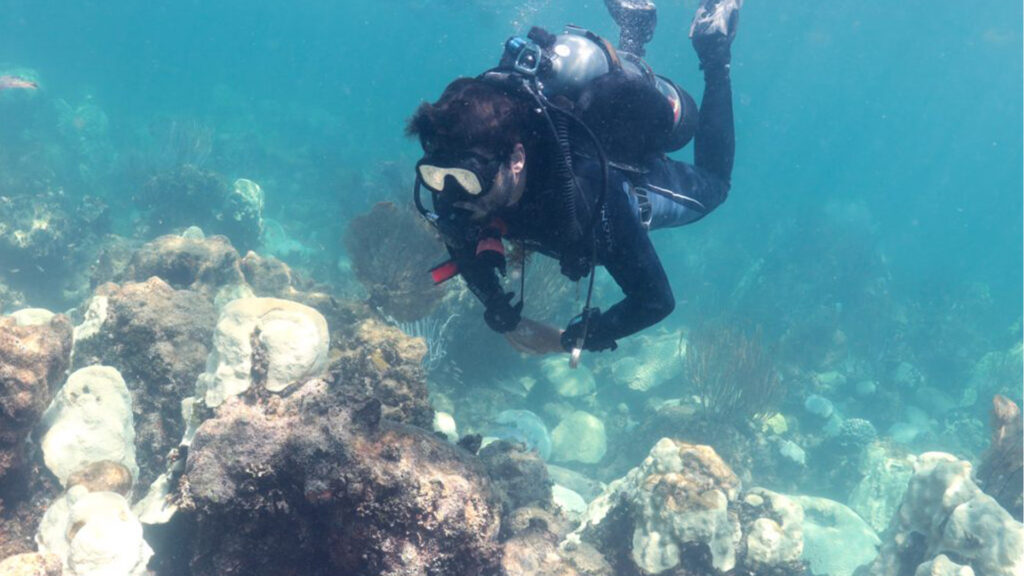A roundup of news items related to climate change and other environmental issues in Florida:
Extreme heat in Florida Keys threatens an entire ecosystem | EcoWatch

In July, a historic marine heat wave descended upon the Florida Keys. Unprecedented coral bleaching ensued within the Florida Keys National Marine Sanctuary (FKNMS), which boasts the largest coral barrier reef within the continental United States. With high temperatures predicted to persist until October, scientists worry about potential harm to the entire ecosystem.
Beginning in mid-July, sea temperatures in the Gulf of Mexico and Caribbean Sea were up to 3.5°F warmer than usual, noted a Mission: Iconic Reefs (MIR) fact sheet emailed to EcoWatch. In South Florida, the marine heatwave hit a record-breaking 95˚F – the warmest ever since recording began. One water temperature buoy, in nearby Everglades National Park, even hit a “hot tub temperature of 101.19°F” with other triple-digit reads nearby.
“The level of warmth we are seeing today is only possible because of the warming over the past 150 years due to human activity,” said Dr. Zeke Hausfather, a climate scientist at nonprofit research institute Berkeley Earth, The New York Times reported.
Unprecedented levels of damage from storms this year is upending U.S. towns, insurance industry | PBS NewsHour
Waves of severe thunderstorms in the U.S. during the first half of this year led to $34 billion in insured losses, an unprecedented level of financial damage in such a short time, according to Swiss Re Group, as climate change contributes to the frequency and severity of violent meteorological events.
Damages from convective storms in the U.S., those that can come with hail, lightning, heavy rain and high winds, accounted for nearly 70% of the $50 billion in global catastrophic damages so far this year, the reinsurer said Wednesday. Those global figures includes earthquakes in Turkey and Syria.
The storms in the U.S. were so severe, there were 10 that resulted in damages of $1 billion or more, almost double the average recorded over the past decade, according to Swiss Re, and Texas was the state most severely effected.
Panthers and bats and bears: Florida’s endangered species have even more room to roam | WGCU
Florida residents now own the right to decide whether more than 5,000 acres of farmland in Charlotte, Hardee, and Highlands counties will ever be developed with homes and strip malls even though the land remains in private hands.
The acreage is now part of the Rural and Family Lands Protection Program, which is one of a medley of protected parks, preserves, and privately-owned land encompassing millions of acres throughout the Sunshine State.
“By partnering with willing farmers to preserve working agricultural lands from development, we can protect their immense economic and environmental benefits while being good stewards of our tax dollars,” Aaron Keller, spokesman for Agriculture Commissioner Wilton Simpson, said to the News Service of Florida.
If you have any news items of note that you think we should include in our next roundup, please email The Invading Sea Editor Nathan Crabbe at ncrabbe@fau.edu. Sign up for The Invading Sea newsletter by visiting here.



